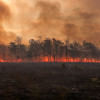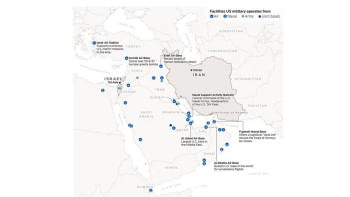Tackling poverty and climate change at the same time

Over the coming decades, at the global level as well as in Bangladesh we will be faced with two major challenges: tackling poverty and climate change. Although at first glance the two issues may not seem to be linked, I will argue that we cannot tackle either without also tackling the other at the same time. This is equally true for both the global and the national level, especially for poor countries like Bangladesh.
I will start by addressing the global level first. The population of planet Earth is currently well over 7.5 billion, with people living in nearly 200 countries of different sizes and levels of wealth. Around one or two billion of them are rich, mainly living in the rich countries, but many also living in poor countries. At the other end another billion or two at the bottom end are poor or very poor and most of them are living in the poor countries. In the middle are around two billion people, comprising the middle class, who are aspiring to become rich over time.
The level of wealth of the wealthiest has been achieved, to a very significant level, due to the benefits of modern energy for electricity, transport and industry through burning fossil fuels such as coal, petrol and natural gas. This in turn has led to pollution of the global atmosphere by the emission of greenhouse gases, causing climate change and global warming. This has already caused the global atmospheric temperature to rise by over one degree centigrade over the last century.
If the middle class—the two billion people—aspiring to become rich were to do so with the current means of generating energy then the global temperature will rise above three degrees. We have collectively agreed under the Paris Agreement on Climate Change to not let it rise above two degrees and if possible, to keep it below 1.5 degrees.
Hence if we wish to tackle global poverty and provide the poorest and the middle class with modern energy, then we need to de-couple development from fossil fuel use within one or two decades. In other words, if we want to tackle global poverty we also have to tackle emission of greenhouse gases from the use of fossil fuels.
Fortunately, the solution is now available in the form of a combination of solar, wind and energy storage technologies. Although these technologies are still in their early stages of development, they are already becoming more efficient and cheaper than some fossil fuels and will soon be cheaper than all fossil fuels.
Already companies, cities and even countries, such as Costa Rica, are planning to become 100 percent reliant on renewable energy within a few years and others will surely follow rapidly.
A second aspect of the link between tackling poverty and climate change is to look at the adverse impacts of climate change which are becoming clearer by the day with heat waves, forest fires, floods, typhoons and droughts proliferating around the globe in the last year alone. The adverse impacts fall most heavily on the poorest citizens in all countries, even in the wealthy ones. Hence all countries need to protect their citizens from the adverse impacts of climate change by helping them to adapt to those impacts. This need for adaptation is particularly important for the poorest people in all countries as they also happen to be the most vulnerable to the impacts of climate change. Hence for poor countries it is imperative that adaptation to climate change is made a priority in order to protect the poorest citizens from becoming even poorer.
I will now address these twin issues of tackling poverty and climate change in the context of Bangladesh and its development pathway over the next decade or two (which is the time window in which these challenges need to be tackled).
Bangladesh is already on track to graduate from the Least Developed Country (LDC) status within a few years (if we can maintain our current rate of progress). However, we are also very vulnerable to the adverse impacts of climate change and hence we need to integrate the issue of adaptation to climate change with poverty alleviation actions across the board. At the same time we should also explore the rapid deployment of renewable energy in place of fossil fuels.
Finally, I will argue that tackling poverty and climate change, although challenging, provides opportunities for companies and countries which can take the lead in demonstrating how to combine efforts to tackle both the issues at the same time, which would be a win-win strategy for the country and the private sector.
Saleemul Huq is the Director of International Centre for Climate Change and Development, Independent University, Bangladesh.
Email: [email protected]










Comments